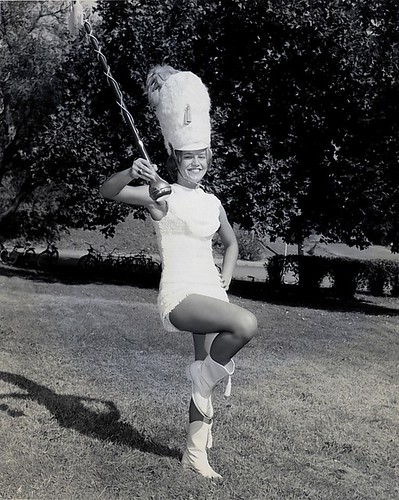By now you should be well aware that Other Side is prone to stretching the concept of humor beyond its elastic limits, and this post will do so as much in that regard as any we’ve ever published. You also know the old saying; ‘records are made to be broken,’ and in the same vein, epic blog groaners are meant to be tossed aside by even less humorous excursions on the silliness axis.
So here we are, at your service. It’s in our nature to go off in such directions, and we’ve learned that ignoring the impulse only makes things worse on our end. Best to yield to the urge and have it dissipate, if only momentarily.

We’re confident that most readers have heard the old saw “politicians make strange bed-fellows.” We’re not sure who first said it, though if we had to guess, it was Ben Franklin. It seems to fit his style perfectly. No matter; we don’t want to pursue the imagery in any way.
You’ve surely heard the other classic, vaguely referenced in the above photo, that ‘all politics is local.’ We’re pretty sure we agree that nearly every issue in the political domain eventually reduces itself to local considerations.
With the above as context, we come to you tonight to talk about pastramics, which we’ve convinced ourselves, is a subject related to politics, if only tangentially. And to suggest that Pastramical Science is the study of applied pastramics.
At this point, you’re probably wondering how we ended up down this dead-end ‘road not taken.’ Here’s a clue:

Here’s another clue:

Which is a visual way of saying that a certain local ‘politician’ and your correspondent have come to a meeting of the minds (or tastes? or appetites?) on at least one local matter. Cured meat is just a symbol for the meeting, because it goes far beyond that.
It turns out the two of us agree on the need to address a situation that is not only unacceptable, but even worse, a threat to the health of numerous Brunswick residents. So we’re pleased to say that Senator Stan Gerzofsky, pictured above, has taken the proverbial bull by the tail and faced the situation. He’s introduced legislation to fix the problem.
We’re grateful, along with numerous other Brunswick residents, that he has the fortitude and wisdom to do so, at considerable risk to his established relationships with various ‘interests’ in our area. Not to mention the risk involved in associating with Side. Such risk is a three way street; fortunately we have no ambitions put at risk by our collaboration.
The bill the Senator has introduced is LD 439, and you can find the particulars here: http://www.mainelegislature.org/legis/bills/bills_127th/billtexts/SP016801.asp We understand he has a lengthy list of co-sponsors equally determined to protect the interests of the most vulnerable.
We’ll save you the trouble by posting them below:
An Act To Prohibit Excessive Idling of Passenger Trains
Be it enacted by the People of the State of Maine as follows:
Sec. 1. 23 MRSA §5006 is enacted to read:
§ 5006. Prolonged passenger train engine operation
1. Prolonged passenger train engine operation. Beginning January 1, 2016, except for engine operation under subsection 2, a railroad company may not operate a passenger train engine while the passenger train is stopped for longer than 30 minutes.
2. Exceptions. This section does not apply to a passenger train engine that is:
A. Being repaired or serviced if the operation of the train engine is essential to the proper repair of the train engine; or
B. Engaged in the delivery or acceptance of merchandise or a passenger for which engine-assisted power is necessary and another means of power is unavailable.
3. Penalty; enforcement. A railroad company that violates this section commits a civil violation for which a fine of $2,500 must be adjudged. The Attorney General may bring an action seeking injunctive relief to enforce the provisions of this section.
summary
This bill prohibits a passenger train engine from operating for more than 30 minutes while the train is stopped except for during repairs or servicing requiring the engine to be running or delivering or accepting merchandise or passengers requiring engine-assisted power and includes a fine of $2,500 for a violation of these provisions.
It should be clear to you that the bill, first and foremost, is targeted at the untenable situation in which a Downeaster train set idles for 5 hours or more each day on the tracks in Brunswick’s downtown neighborhoods And if you haven’t had the pleasure of breathing in the lovely fumes and other residues of such idling, we personally invite you to join us trackside to do so
Trust us; gently simmering pastrami it’s not.

We fully expect this proposed legislation to energize local members of the Downeaster Marching Band, led by their latest Majorette, AAB’s own Claudia Knox. She’ll be leading The Booch, ET, Saint Wayne, Patsy, and various others in opposing this common sense measure to see that the little used passenger train is, at the very least, an inoffensive visitor to our town.
By the way, if the band members should suggest that NNEPRA, Amtrak, and the Downeaster are being singled-out by trainists, know that they’re dead wrong. Maine already imposes limitations on idling of motor vehicles via statute as shown at http://legislature.maine.gov/statutes/38/title38sec585-L.html.
We’re told by those in the transportation industry that many municipalities impose even more stringent rules on vehicles.
Here’s the heading to the statute:
Maine Revised Statutes
Title 38: WATERS AND NAVIGATION
Chapter 4: PROTECTION AND IMPROVEMENT OF AIR
§585-L. IDLING REQUIREMENTS FOR MOTOR VEHICLES
(REALLOCATED FROM TITLE 38, SECTION 585-K)
1. Applicability. This section applies to:
A. Commercial motor vehicles, as defined in 49 Code of Federal Regulations, Section 390.5 (2007),
and commercial motor vehicles used on a highway in intrastate commerce; [2007, c. 2, §26
(RAL).]
B. Locations where commercial motor vehicles load or unload; and [2007, c. 2, §26 (RAL).]
C. Gasoline-powered motor vehicles except private passenger vehicles. [2007, c. 2, §26
(RAL).]
[ 2007, c. 2, §26 (RAL) .]
We’re guessing the law did not address passenger trains because frankly, passenger rail had all but disappeared by the time the subject came up.

In closing, if you haven’t figured things out by now, the simple fact is that your Senator and your correspondent have found common ground.
You may not think of this as ‘common ground,’ but if you don’t, you don’t know either of us very well.
Maybe it’s time for a ‘caucus’ at the Big Top Deli, where Big Tony acts as the Sergeant at Arms.
We’re up for it if you are.










